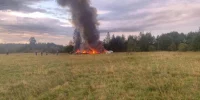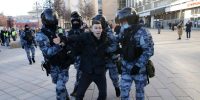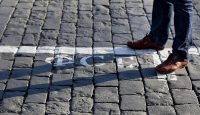
Alexei Navalny’s most powerful legacy is urging Russians to imagine their country without Putin
Alexei Navalny was the leading opponent of Vladimir Putin inside Russia – even from behind bars and often in solitary confinement.
He made his name while still a free man by unmasking the nature of the regime through corruption exposés, protests, and by trying to be a ‘normal’ politician in a system dominated by one other man.
Navalny’s death provides another, potent demonstration of the system Putin has constructed: a murderous personalist autocracy that continues to spread destruction and misery in its ongoing war on Ukraine.
We may never know the full details leading up to Navalny’s death in the ‘Polar Wolf’ prison colony within the Arctic Circle on 16 February.… Seguir leyendo »








